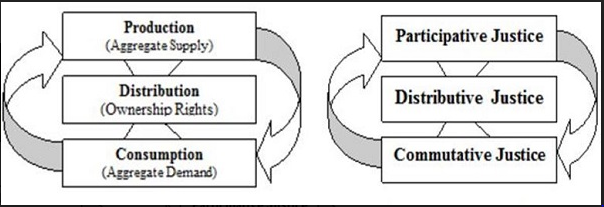On December 11, 2016, I posted on Econintersect an essay that focused its attention on Cuba. It was titled “Own Cuba – Don’t Sell Her.” It is now time to enlarge our focus on Africa, namely on each and every nation of Africa, and the rest of the world for that matter.
Here is what I said then.
With the passing of Fidel Castro, will Cuba finally be truly free?
On Feb 10, 2016, Luis Gutierrez wrote to [email protected]:
I am not a fan of the Castro regime. Not that what we had before was much better, but the cure has been even worse than the disease. Pity, because the Cuban revolution could have been a good turning point but was betrayed and corrupted by absolute power. Communism is extreme capitalism turned upside down and inside out; even more materialistic than capitalism, and with human rights either ignored or manipulated at will by the state. Not recommendable, but let’s see what they can do now that they no longer blame the embargo for the Cuban disaster.
What they will most likely do is what Russia and China have done after the collapse of communism. They have sold juicy morsels of the people’s labors to a few exploiters and created billionaires. Back to the worst forms of capitalism, in other words. Not even Adam Smith was favorable to this type of capitalism. In fact, tucked very tightly within the folds of the Wealth of Nations, there is this strong maxim that ought to keep Neoliberals on their toes:
“All for ourselves and nothing for other people, seems, in every age of the world, to have been the vile maxim of the masters of mankind.”
A True Alternative, a Revolution from the Center
The pendulum swings wildly back and forth, a revolution from the left predictably spurs a revolution from the right. How can one evaluate this long historical tradition? Even without adding the effects of the next expected collapse of the world financial system, it can objectively be said that the social, economic, and political condition of We the People of the world is getting progressively worse. One cannot expect anything much better from a continuation of ongoing economic policies.
We the People have not yet really experienced a revolution from the center. This is a real alternative, I believe, to the structural weaknesses of both individualism/capitalism and collectivism/communism.
Socialism (and the ideology of social justice) has, of course, been the traditional preferred alternative. But socialism tends to carry with it the structural weaknesses of both capitalism and communism. In the course of fifty years of ongoing research and publication, the real alternative that I have discovered and strongly recommend to Cuba and all other nations of the world is this: If the intention is to build a world of solidarity and sustainability, Concordian economics is the economic framework one may want to embrace. Concordian economics leads to a revolution from the center,
Concordian economics
Concordian economics is a candidate to replace mainstream economics. Concordian economics offers an integration of economic theory, policy, and practice.
Here are two diagrams that present theory and policy back to back:

Concordian economic theory presents the integration of Production of real goods and services; Consumption or expenditure of financial assets to acquire real goods and services; and the Distribution of the value of ownership rights over goods as well as money. One cycle of the process is completed when goods pass from producers to consumers and money from consumers to producers; for the exchange to occur – in a civilized way – both producers and consumers must have ownership of what they exchange.
Even in the purchase of a car there is an exchange of three items: 1. the car; 2. the money; and 3. the deed of ownership.
Since in any transaction there are three entities, real wealth, people, and money, a full economic analysis has to take care of all three bottom lines: planet, people, and profits. A brief explanation for this broad coverage is that Production, Distribution, and Consumption are synthetic terms; but they are universal. Therefore, they encompass all real wealth, all financial instruments, and all ownership rights – whether they are produced by or belong to private individuals, to governments, or are held in common as in “commons.”
Concordian economic policy presents an integration of the three essential planks of economic justice: the right to participate in the economic process (participative justice); (in order to obtain) the right to a fair share of what one produces (distributive justice); and the right to receive an equivalent value of what one gives (commutative justice).
And here is how theory and policy are translated into action. Concordian economic practice presents an integrated set of rights and responsibilities in relation to the four essential factors of modern production: the right of access to land and natural resources and the responsibility to pay taxes on that portion of land and natural resources that fall under our exclusive control; the right of access to national credit and the responsibility to repay loans acquired through national credit; the right to the fruits of one’s labor and the responsibility to contribute to the process of creation of wealth; the right to the enjoyment of one’s wealth and the responsibility to respect the wealth of others. The exercise of these economic rights presupposes, not the absence, but the full bloom of such political rights as freedom of speech and the responsibility to exercise the voting franchise.
NOTE: While the introduction of economic justice at the core of Concordian economics is an automatic operation, we must be aware of its historical importance. With economic justice, we return to the intellectual world that prevailed from Aristotle to Adam Smith – with adjustments, of course. The core of that world was encapsulated in John Locke’s formula: we all have the right to “life, liberty, and property“. To return to that world, in other words, is to somewhat mischievously undo what Jefferson did. We all know that Jefferson erased the word property from the Draft of the Declaration of Independence, and substituted it with the expression “the pursuit of happiness“. By crossing out the word “property“, Jefferson broke with Tradition and thrust us toward the la la land of “happiness“. This is a land of entitlements. This is a land of “rights” and no responsibilities. Jefferson had to do that, because otherwise he would have not saved the union. Property then covered the horrible practice of ownership of human beings, and the South was not ready to free the slaves. But thanks to Abraham Lincoln, slavery does no longer plague us. We can safely go back to the ancient formula of “life, liberty, and property“.
The Crucial Importance of Ownership
The best way of summarizing the core of the new/old train of thought represented by Concordian economics is for me to touch upon the crucial importance of ownership. The Framers of the US Constitution did know in their bones the relationships among personal freedom, political liberty, and culture. They knew that these relationships are all rooted in the ownership of property; they knew this reality to such an extent that they denied the voting franchise to the propertyless. This solution was obviously wrong and became unsustainable.
The right solution, as George Mason recommended, is to extend the “means of acquiring and possessing property” to everyone. A copy of the Virginia Declaration of Rights, which embodies this high principle, faces me every time I go upstairs in my house, a colonial house. George Mason’s goal is finally within reach.
The way to reach this goal is to expand upon a recommendation I advanced in a series of essays collected in To My Polis, With Love in the early part of this century. Then I pleaded: “Do not sell Gloucester – Own It.”
Today I will enlarge the field of observation and heartily make the same recommendation to Cubans: “Do not sell Cuba – Own her.”













Leave A Comment